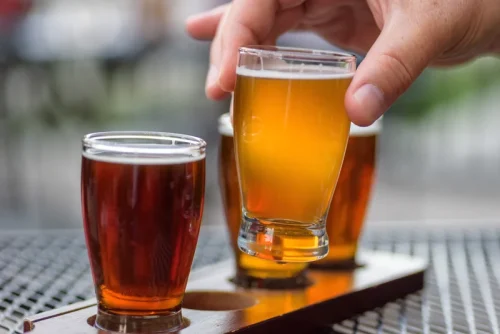
We will also discuss various strategies for developing coping skills, support systems, and maintaining a sober lifestyle. Embark on this transformative journey with us and discover how you can conquer the obstacles of staying sober, rebuild your life, and flourish in recovery. Navigating the journey of long-term recovery from alcohol addiction is a challenging but rewarding process. Whether choosing complete abstinence or attempting moderation, being mindful of potential pitfalls and triggers is crucial to maintaining sobriety. Embarking on the journey of sobriety isn’t just about saying no to substances; it’s a transformative process that touches every aspect being sober around drinkers of your life.
Recognizing and Preventing Relapse
From the physical to the emotional, the path to sobriety reshapes your relationships, mental health, and overall well-being. It’s a commitment to personal growth and freedom that requires dedication, support, and the right therapeutic interventions. Remember, sobriety isn’t a destination but a journey of continuous self-discovery and improvement. With each step, you’ll find yourself enjoying clearer thoughts, healthier relationships, and a deeper sense of control over your life. Embrace this journey with an open heart and mind, and watch as your world transforms into one filled with possibilities, health, and happiness. They can be facilitated by a professional or casual, and they strive to assist members in managing their situations and enhancing their mental health.
- Embracing sobriety as a journey towards personal freedom involves a holistic approach.
- Medication-Assisted Treatment (MAT) is another critical component in the intersection of sobriety and mental health.
- The journey to sobriety is continuous, often filled with its fair share of ups and downs.
- It necessitates hard work, determination, and a commitment to personal growth.
The Changing Recovery Brain
Maintaining a structured routine can help reduce stress and anxiety, while also providing a sense of stability and control. Addressing both the substance use disorder and the co-occurring mental health disorder is essential for successful recovery. By seeking professional help and implementing coping strategies, individuals can tackle both conditions simultaneously and pave the way for long-term sobriety. How do you feel about yourself when you’re drinking or using drugs?

Question About Treatment
If PAWS is severe or if you’re experiencing prolonged symptoms, a medical professional can help you work through them and remain in recovery without relapse. I wish I could promise that if you don’t drink for four months or six months or twelve, then you’ll have reached some magical number where all your hopes and dreams come true. Because I was a mental and emotional wreck with no sense of self-worth, it was easy to take advantage of me. Now, I can deal with them the same way you would deal with any chronic disease.
Sometimes people think alcohol use is “heavy” or excessive only when the person consuming alcohol is passing out or becoming aggressive with others. However, what many people consider to be “social levels” of drinking are actually defined by the Centers for Disease Control and Prevention (CDC) as heavy drinking. You may again seek out the people and situations that support your alcohol use. Some people who move from a controlled and protective setting find themselves awash in the environmental cues that lead to their drinking. Sobriety can be a fixed-term goal like staying sober for a set period (such as Dry January), or a lifelong goal of staying sober from all substances.

Another critical aspect is the transformation of social dynamics. Sobriety might mean reevaluating and, in some cases, distancing yourself from certain relationships, especially those that encourage or are centered around substance use. It’s important to surround yourself with people who respect your choice to remain sober and who support your recovery journey. This might mean forging new friendships within sober communities or support groups where mutual experiences foster deep understanding and companionship. As you step away from substance dependence, communication becomes a cornerstone.

 Facebook
Facebook Youtube
Youtube Twitch
Twitch